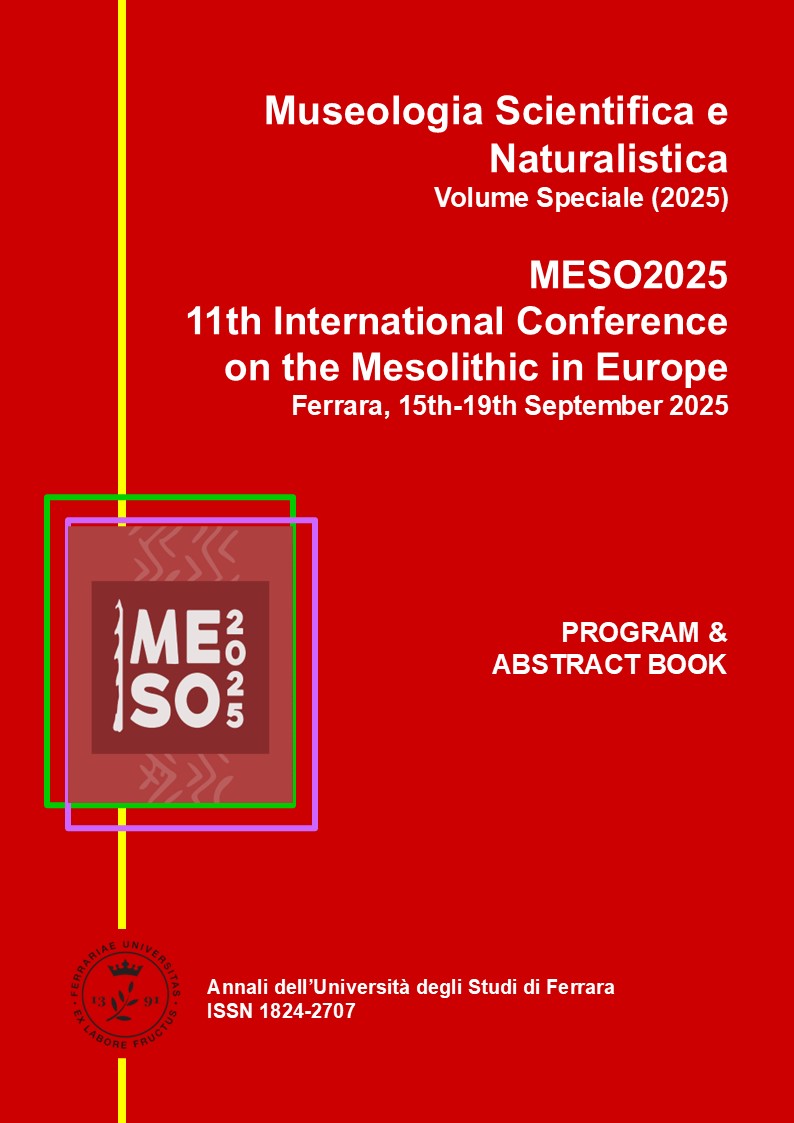MESO2025 - Session 2. Colonisation
Coordinated by Astrid J. Nyland and Graeme Warren
DOI:
https://doi.org/10.15160/1824-2707/3077Abstract
This session welcomes contributions that explore themes related to colonisation processes in the Mesolithic and Late Palaeolithic. This can involve several aspects and situations. Firstly, "pioneer" colonisation of previously uninhabited regions or specific areas, including mountainous/alpine regions, or islands or archipelagic landscapes. This may sometimes mean re‐colonisation of areas deserted for differing periods of time. In such context, the potential "memory" of these earlier landscapes is an under‐explored topic. Another related process involved migrating people entering (to them) new lands, but where people already lived. How are such meetings visible in the archaeological material and how does considering these meetings as a colonisation process help us understand them?
Colonisation processes need to be engaged with in different ways via the application of different methods, explanation models, and theoretical perspectives. Here are some potential questions to address: (i) Is "colonisation" an appropriate term to use to describe the processes by which people moved into new landscapes in European prehistory? (ii) How do various types of "mobility" fit with the concept of "colonisation"? (iii) What caused people to move to new lands? (iv) Can we identify "memory" of previously occupied landscapes? (v) Which climatic or environmental conditions push people out or make areas attractive? Are there limits to ecological conditions to where people choose to settle? (vi) Can we improve the chronological resolution of colonisation processes? (vii) How did people familiarise themselves with new territories, resources, and people? (viii) How are relations to new or old lands and people maintained or expressed? (ix) How can we differentiate between permanent moves into new land and seasonal exploitation of marginal landscapes? (x) How do new sources of evidence, such as genetic data, change our understanding of colonisation processes and how do we best combine data of different kinds?



